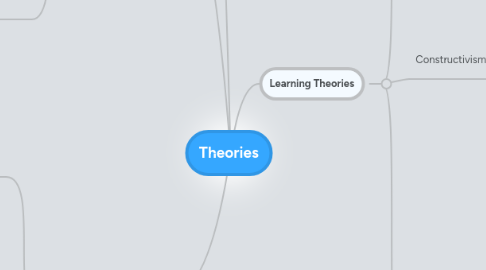
1. TPACK
1.1. 7 different knowledge areas
1.1.1. Content knowledge
1.1.1.1. Knowledge of topics to teach
1.1.2. Pedagogical knowledge
1.1.2.1. Knowledge of how to teach
1.1.3. Technology Knowledge
1.1.3.1. Knowledge of how to use technology
1.1.4. Pedagogical content knowledge
1.1.4.1. Knowledge of how to teach content
1.1.5. Technological content knowledge
1.1.5.1. Knowledge of how to best connect content through technology
1.1.6. Technological pedagogical knowledge
1.1.6.1. Knowledge of how to use technology to teach
1.1.7. technological pedagogical content knowledge
1.1.7.1. Knowledge of how to use technology to teach specific content.
1.2. Technological Pedagogical Content Knowledge
2. Technology Theories
2.1. Media Ecology
2.1.1. The study of media environments
2.1.1.1. Idea that how we communicate and with what tools is of fundamental importance.
2.1.1.2. "the interactions of communications media, technology, technique, and processes with human feeling, thought, value, and behavior"
2.1.1.3. Fundamental question of: How do we affect media, and how does media affect us?
2.1.2. No clear framework for ideas and questions as of yet.
2.2. SCOT
2.2.1. Social Construction of Technology
2.2.1.1. Interpretative Flexibility
2.2.1.1.1. Different technologies have different meanings for different groups.
2.2.1.2. Relevant Social Groups
2.2.1.2.1. The producers and users of technologies.
2.2.1.3. Design Flexibility
2.2.1.3.1. Why technologies are designed the way they are.
2.2.1.4. Problems and conflicts
2.2.1.4.1. Different cultures and societies have different conflicts based on cultural/societal expectations and desires.
2.2.1.5. Closure
2.2.1.5.1. Problems may either be viewed as solved or redefined.
2.2.2. Relating technology to wider sociological concepts and issues
3. Philosophy of Teachnology
3.1. One's views about how technology should be used in the teaching and learning process.
3.2. Closely tied to one's teaching philosophy. How can technology complement/play a role in this philosophy?
3.3. Helpful to maintain as a personal development tool
4. Learning Theories
4.1. Connectivism
4.1.1. Learning is the process of connecting information from different sources.
4.1.2. Learning may happen on a larger scale than within an individual - in a network or database.
4.1.3. Knowledge is comprised of that which the individual understands internally, as well as the information they have access through via networks.
4.1.4. Creation is a key learning process. There are diverse tools available.
4.1.5. Ability to see and create connections is fundamental to success in our world today.
4.1.6. Learning happens in many different ways, as there are many different ways that we connect.
4.1.6.1. conversations, email, Twitter, forums, web searches.
4.1.7. Accurate and current knowledge is the aim of learning.
4.2. Constructivism
4.2.1. Scaffolding
4.2.1.1. Learners build new knowledge upon a foundation of previous learning.
4.2.2. Learning is active. Not passively transmitted/ received.
4.2.3. Learning is plastic.
4.2.3.1. Previously accepted understandings can be modified as new experiences bring new outlooks.
4.2.4. Collaboration is a great tool for success as people share perspectives and meanings to create solutions.
4.2.5. Learners are never "blank slates". Previous understanding influences the construction of new knowledge.
4.3. Cognitive Load
4.3.1. Mind structures
4.3.1.1. Working memory
4.3.1.1.1. thinking and awareness
4.3.1.2. Long term memory
4.3.1.2.1. stored factual and procedural knowledge
4.3.1.3. Schemas
4.3.1.3.1. framework for the organization and perception of information
4.3.1.3.2. Automation: The result of well developed schemas. Doing something without conscious thought.
4.3.2. 3 load types
4.3.2.1. Extraneous
4.3.2.1.1. caused by inappropriate instructional designs.
4.3.2.2. Intrinsic
4.3.2.2.1. caused by complexity of elements interacting in working memory.
4.3.2.3. Germane
4.3.2.3.1. caused by effortful learning
4.3.3. Information should be meaningfully grouped/compressed.
4.3.4. Repetition is an effective learning technique.
4.3.5. Organized and clear presentation of information is key.
